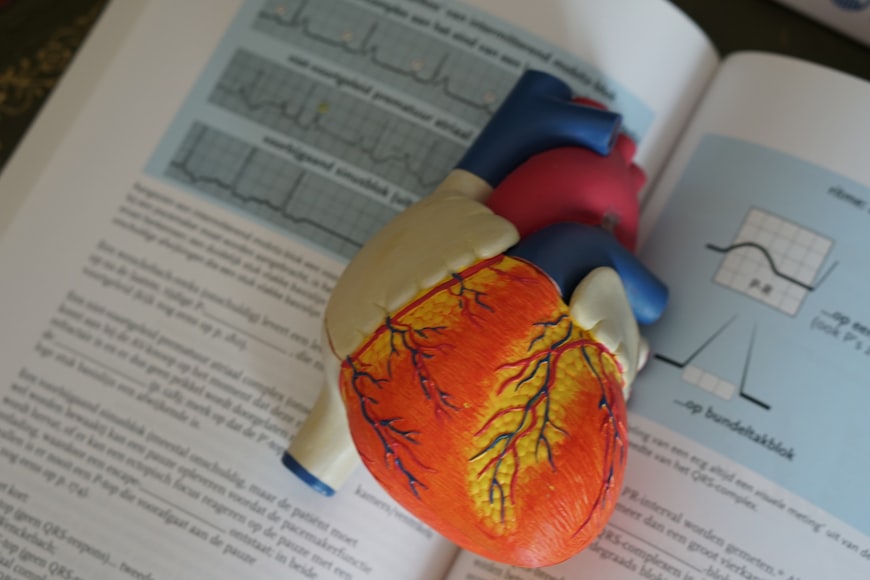It’s no secret that our daily habits can have a huge impact on our overall health and well-being, but did you know that some of these everyday activities could be secretly damaging your heart? From the food you eat to how much exercise you get, many of our daily choices can have a negative effect on our heart health. In this blog post, we’ll explore 10 common daily habits that are unknowingly damaging your heart and provide tips on how to make small changes to keep your heart healthy and strong.
1) Eating processed foods

Processed foods can be harmful to your heart health, as they contain preservatives, artificial colors and flavors, and are usually high in sodium, sugar, and saturated fat. Eating processed foods regularly can increase your risk of heart disease, stroke, and obesity. Opt for fresh ingredients instead and prepare your meals yourself whenever possible.
2) Not getting enough sleep
Lack of sleep can increase the risk of heart problems, as it can increase stress hormones and lead to other unhealthy habits like overeating. Try to get at least 7-8 hours of sleep every night to keep your heart healthy. Additionally, avoid looking at screens right before bed as the blue light can make it harder to sleep.
3) Not exercising

Regular physical activity can help reduce the risk of heart disease. But if you don’t exercise, your risk increases significantly. Aim to get at least 30 minutes of physical activity every day. This can be a walk around your neighborhood, some yoga, or a weight-lifting session. Whatever it is, make sure you get up and move every day!
4) Smoking
Smoking is a major contributor to heart health. Not only does smoking increase the risk of cardiovascular disease, but it also increases the risk of stroke, lung cancer and other serious diseases. Quitting smoking is one of the best things you can do for your heart health. It’s never too late to quit and start making healthier choices.
5) Drinking too much alcohol

Consuming too much alcohol can put a strain on your heart. Heavy drinking can increase your blood pressure and lead to cardiomyopathy (a weakening of the heart muscle). It can also cause arrhythmia (irregular heartbeat) and an increased risk of stroke. Limit your alcohol intake to one drink per day for women and two drinks per day for men.
6) Having too much stress
Stress is a normal part of life, but too much of it can be dangerous for your heart health. High levels of stress can lead to high blood pressure and a weakened immune system, increasing your risk of heart disease. To reduce your stress levels, take breaks during the day to relax, practice deep breathing exercises, and stay active.
7) Not managing your diabetes

If you have diabetes, it is important to keep your blood sugar levels under control by taking your medications as prescribed and maintaining a healthy lifestyle. Uncontrolled diabetes can cause damage to the heart, kidneys, nerves and other organs. Regularly monitoring your blood sugar, eating a balanced diet and exercising are key to keeping your diabetes in check.
8) Not eating enough fruits and vegetables
Eating a diet low in fruits and vegetables can have negative consequences for your heart. Fruits and vegetables contain essential vitamins, minerals, and fiber that can help reduce the risk of developing heart disease. Eating at least five servings of fruits and vegetables every day is essential for maintaining a healthy heart.
9) Not taking your medications as prescribed

It is important to always take your medications as prescribed by your doctor. Taking too little medication or skipping doses can be harmful to your heart health. Even if you are feeling better, make sure to follow the directions on the label. Not taking your medications as prescribed can cause your condition to worsen, leading to more serious issues. Always consult your doctor before making changes to your medications.
10) Ignoring the signs of a heart attack
A heart attack can be life-threatening, so it is important to be aware of the signs. Common symptoms of a heart attack include chest pain, shortness of breath, nausea, and cold sweats. If you experience any of these symptoms, seek medical attention right away. Timely treatment is key to preventing serious complications. Unfortunately, too many people ignore these signs and wait too long to seek help. Be proactive in taking care of your heart health.

